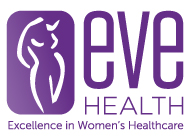Today we explore our final topics in our four-part series which has focussed on some of the symptoms and treatments of Polycystic Ovary Syndrome, as part of PCOS Awareness Month 2021. We’ll focus on hair and acne management, and weight management.
Please see our previous articles for information about fertility, mental health and treatments for an irregular menstrual cycle.
Hair and acne management with PCOS
High levels of androgen hormones can cause acne and excess hair on the face and body (hirsutism), or hair loss from the scalp (alopecia). As these are physical symptoms that are often visible to other people, many women comment that their self-esteem suffers.
To reduce excessive hair growth your doctor may recommend medical treatments including:
- Birth control pills. Pills will decrease androgen (hormone) production that can cause excessive hair growth.
- Spironolactone (Aldactone). The medication blocks the effects of hormones such as testosterone on the skin. It can cause birth defects however, so effective contraception will be required when taking this medication. It will not be recommended even if you’re thinking of becoming pregnant.
- Elfornithine (Vaniqa). This cream can slow women’s facial hair growth.
Other remedies for removing hair include:
- Tiny needles are inserted into each hair follicle, pulsing electronic current to damage and eventually destroy the follicle.
- Waxing and laser hair removal by a trained professional who uses the correct equipment for your skin type.
To reduce acne, you doctor may suggest creams or gels that reduce pore blocking, oil production and inflammation. Methods to reduce hair growth, such as the combined oral contraceptive pill, may also aid in reducing acne.
As with all the medications, it is important to speak with your doctor about any side-effects.
While there are limited studies about the role of diet, nutrients and acne specifically in women with PCOS it is becoming accepted that a diet with a high glycaemic load can contribute to acne generally. Glycaemic load refers to the effects of carbohydrates on blood sugar levels. Refined carbohydrates and processed unhealthy foods are therefore best avoided to help manage acne.
Weight reduction
When managing PCOS it’s important to be as healthy as possible. If you are overweight, even just five to 10 percent of total body weight loss can result in benefits to the management of a range of PCOS symptoms.
Weight loss can help reduce insulin and androgen levels and can help restore ovulation. It is best to speak with your doctor or a dietitian to assist with a weight-control or weight loss program.
Treatments and management may include healthy lifestyle plans, weight-loss medication, and in some cases, surgery.
Weight loss can assist to:
- Restore normal hormone production, which can help improve fertility and regulate periods
- Improve mood and psychological wellbeing
- Reduce symptoms associated with facial and body hair growth, scalp hair loss and acne
- It can also reduce the risks of developing type 2 diabetes and cardiovascular disease
- Improve fertility and health during pregnancy
Weight loss is best achieved through a combination of physical activity and a healthy diet. See more on these topics below.
- Physical activity
Being physically active is really important in managing PCOS, helping to improve symptoms and reduce the risks of long-term health conditions. Even without weight loss as the end goal, physical activity will help to:
- Reduce androgens
- Improve insulin resistance
- Regulate menstrual cycles
- Induce ovulation
- Improve fertility
- Increase energy levels
- Improve self-esteem
- Reduce anxiety and depression
See this article here for more information about the types of exercises recommended.
If you experience barriers with regards to exercise, such as feeling self-conscious or have concerns regarding injuries and exercise, it can be helpful to see a physiotherapist or exercise physiologist for further advice, support and motivation.
- Healthy eating
What you eat plays an important role in the management of many PCOS symptoms. First it’s important to focus on preventing weight gain, and then losing weight if you are carrying excess weight. A long-term healthy diet helps to regulate hormone levels which then helps improve other symptoms like acne, excess hair growth, menstrual regularity, ovulation, fertility, and reduces the risk of other health related conditions like type 2 diabetes and heart disease. Your doctor may recommend a low-carbohydrate diet to help you manage PCOS. Jean Hailes’ Healthy Living page is a great resource for more information about what and when to eat.
- Managing PCOS with natural and complementary therapies
There are many therapies women with PCOS use to treat their general wellbeing, which in turn can help their emotional health and weight management. Natural remedies commonly used include supplements and vitamins, minerals and fish oils, and some herbal medicine, depending on the woman’s health concern. There is limited research regarding natural therapies and PCOS specifically, however you can visit this webpage for more information.
Sources and further reading:
- Jean Hailes for Women’s Health
- Jean Hailes for Women’s Health (fact sheet)
- Jean Hailes for Women’s Health (healthy food & exercise)
- Better Health Channel
- Mayo Clinic
Comments are closed.
